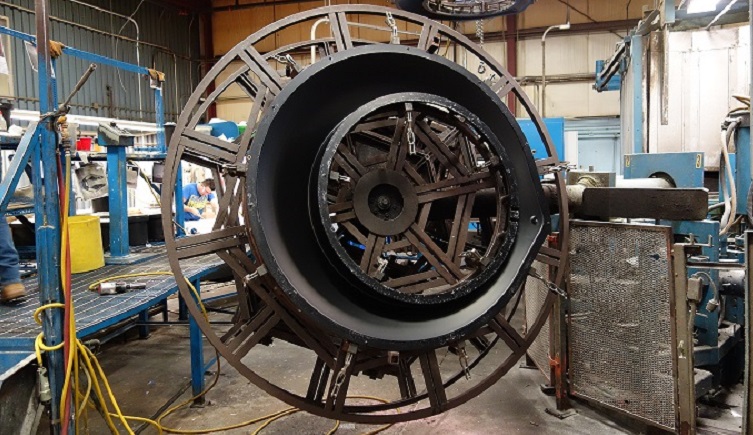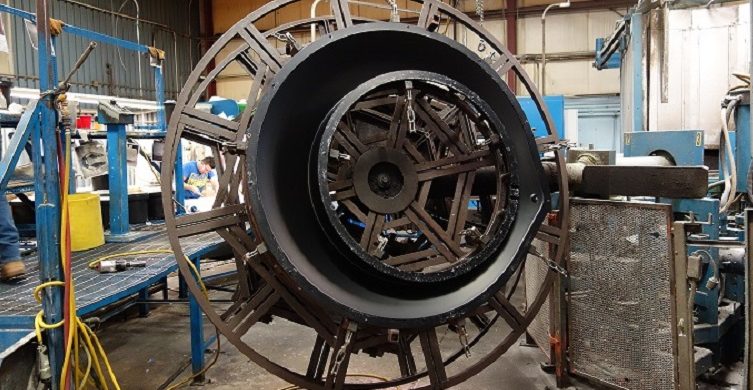
Molds for rotational molding are inexpensive and lightweight. They can be as simple as a round object or support features such as ribs, undercuts, and tapers. Two-piece molds are typical, but three-piece molds are sometimes required for part removal. Regardless of the number of pieces, the tooling that’s used in rotational molding does not require coring or cooling.
Part Design and Mold Design
For part designers, mold selection depends on the size, shape, and surface finish of the part to be molded. For higher-volume projects, it’s also worth considering the number of molds that are needed. The interior surface of the mold needs to be non-porous, and different types of mold materials have different heat conductivity.
Types of Molds
Types of rotational molds include:
- Cast aluminum
- Sheet metal molds
- Electro-formed nickel
- Vapor-formed nickel
- CNC machined
- Composite
The following sections describe them.
Cast Aluminum and Sheet Metal Molds
Cast aluminum rotational molds are the most common type. They have good heat-transfer characteristics, but cast aluminum can be porous. Most rotomolded parts that are small or medium in size are made with a cast aluminum mold. By contrast, sheet metal molds are used mainly for larger parts. They are easy to fabricate since the different sections of the mold just need to be welded together.
Other Types of Rotational Molds
Electro-formed nickel and vapor-formed nickel molds can both produce parts with a high level of detail; however, vapor-nickel molds are more expensive. CNC machining molds can also incur greater costs because CNC machine time is required. Composite molds with jacketed heating elements may also be used for some rotational molding projects.
Ask Gregstrom About Tooling for Rotational Molding
Gregstrom Corporation of Woburn, Massachusetts (USA) is an experienced rotational molder that also provides tooling services. Whether you need cast aluminum, sheet metal, or CNC machined molds, we’re ready to help with your next plastic projects. Gregstrom also provides design assistance along with value-added services that include plastic finishing, CNC and robotic routing, and quality assurance.
Ready to learn more? Contact us.

